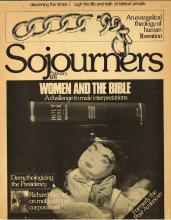The Washington National Cathedral stands atop Mt. St. Albans, the highest point in Washington, D.C. The medieval style cathedral is one of the last to be built anywhere in the world--construction of it began early this century and still is not completed. Impressive in its massive size, majesty, and overwhelming grandeur, the cathedral, like its ancient counter-parts in Europe, speaks of the church’s unchanging traditions, unswerving authority, and resolute power. Through its presence this is what the cathedral told the medieval peasant about the church. And that is why those denominations who trace their roots to the Reformation stopped building or worshiping in cathedrals.
The Episcopal Church still feels at home within cathedrals. To be sure, they are few, and within that denomination flow many fresh and unsettling currents of Christian witness. Yet it is still a church of tradition, hierarchy, and ecclesiastical power. It feels at home in its Washington National Cathedral.
At the very center of that cathedral, beneath the main sanctuary, and between its four massive foundational pillars, is the chapel of St. Joseph of Arimathea. On January 10, 1976, the Right Reverend William F. Creighton, Episcopal Bishop of Washington, entered that chapel to pronounce a sentence on the Rev. William A. Wendt, rector of St. Stephen and the Incarnation Episcopal Church in Washington D.C.
Read the Full Article
